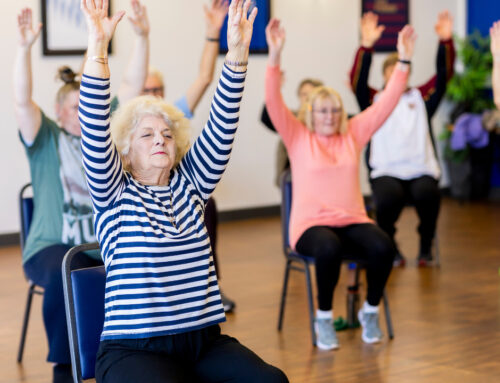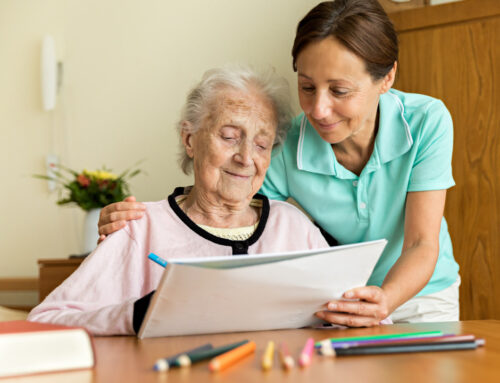Mental Health Talking Point: Seniors With Clinical Depression
It’s normal for older adults to experience occasional bouts of sadness. After all, as people age, they tend to experience more health problems and struggle with grief more often than their younger peers. Bereavement, sadness, and even fear for the future can all be healthy emotions, but senior depression is never normal.
Depression is a serious mental health condition that may affect everything from thoughts and feelings to motivation and even the ability to care for oneself. For older people who are also struggling with physical health issues and other challenges, it can be devastating. However, there are ways for seniors to get the help they need to manage depression and other mood disorders.
Signs and Symptoms of Depression
It’s not uncommon for seniors who are dealing with clinical depression for the first time to have trouble recognizing its symptoms. Family members and other senior care providers can do their part by keeping an eye out for common signs and symptoms, but older adults should also educate themselves. The most common symptoms of depression in seniors are:
- Difficulty concentrating
- Problems with remembering details
- Inability to make simple decisions
- Impairments to social functioning
Physical aches, pains, or headaches that won’t go away
The first step is always to schedule an appointment with a primary care coordinator or a geriatrician who can provide an accurate medical diagnosis. Only a doctor can diagnose a patient with clinical depression. From there, most patients will be referred to a specialized geriatric psychologist or psychiatrist for help with determining a treatment plan.
Understanding Risk Factors
Depression is a complex mental health disorder that does not have one specific cause. However, doctors and researchers have pinpointed a multitude of risk factors for senior depression. They include the following.
Co-Occurring Conditions
Seniors are more likely than younger Americans to experience co-occurring physical and neurological problems. Being diagnosed with a serious disorder such as cancer, heart disease, or Alzheimer’s disease can induce depressive episodes even in people who have never experienced clinical depression.
Certain Medications
Certain medications prescribed to treat physical illnesses can also cause negative side effects, including increased feelings of depression and symptoms that may contribute to a new or worsening mood disorder. If this is the case, it’s important to speak with a doctor about trying alternative medications.
Decreased Independence
Older adults often take pride in their ongoing abilities to care for themselves independently. Unfortunately, everyone eventually needs help with the activities of daily living. The idea of seeking help from home care nurses or assisted living homes can be distressing to those who value their independence.
Increasing Stress
Stress can lead to anxiety, which can contribute to the development of depression, and while people experience stressful life events at all ages, seniors tend to bear the brunt of them. The fears that most people have about aging, dying, or needing memory care for seniors are often enough to induce feelings of hopelessness and trigger bouts of clinical depression.
Treatment Options
The good news for older adults dealing with depression is that there are treatment options designed to suit each person’s needs. For some, moving to a senior living community can provide the extra support and socialization required to beat mild episodes of depression. For most, though, a combination of lifestyle changes, pharmaceutical interventions, and therapy will be required to get maximum relief. Standard treatment options for geriatric depression include one or more of the options below.
Individual Psychotherapy
Psychotherapy is a form of talk therapy. It allows seniors to find new perspectives on their problems, learn how to manage stress, and acquire the tools needed to deal with difficult emotions.Â
Group Counseling
One-on-one therapy sessions are usually designed to target seniors’ unique problems. Group counseling sessions, on the other hand, offer broader insight into the struggles associated with aging, provide a sense of community, and let seniors struggling with depression know they are not alone.
Antidepressant Medications
Antidepressant medications, including SSRIs and atypical antidepressants, reduce the symptoms of depression. They are usually combined with therapy to ensure the best results.
The Value of Community
Moving to an assisted living community in Simi Valley, CA, doesn’t just mean gaining access to a wealth of services. It allows seniors to socialize with peers, participate in fun activities, and discover new ways to find meaning in life.
Here at Vista Simi Valley, we believe that all seniors deserve to enjoy their golden years. That’s why we provide the staff, amenities, and services required for seniors with clinical depression to get the help they need. Schedule a visit by calling (805) 351-8802 today.





